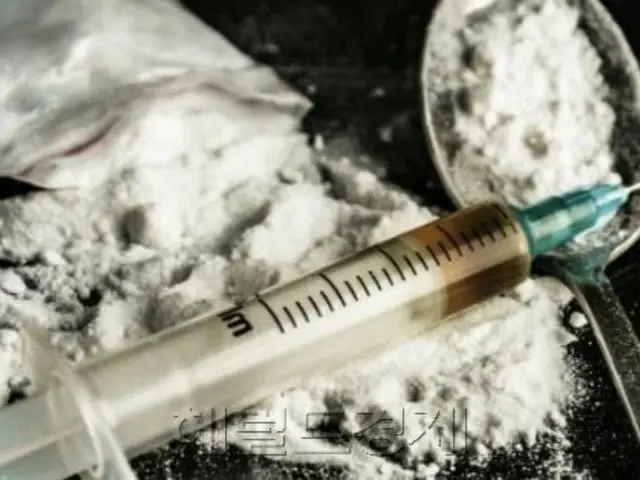did. According to Yonhap News, "LIQUID" was held on the 23rd in the underground parking lot of Konkuk University's facility in Seoul.
Please write in English that you are looking forward to hearing from someone who wants WEED (cannabis liquid).
One card-type print was found. It was said to have been inserted into the window of a car parked in the parking lot. A QR code is displayed on the back to encourage access. Big
The university urged students to be careful not to scan the QR code if they find printed materials with such information written on them. He has already consulted the police. ground former police
We are currently trying to identify the person who placed the printed material through analysis of security camera footage. The day before, printed materials with such content were collected at Hongik, also located in Seoul.
) was also found in large. The printed matter was found in the university's Faculty of Fine Arts building, and according to the Aju Nippo, it read, ``I have liquid cannabis, so please contact me,'' and ``Just one sip will cause you to die.''
It is said that the text contained inciting content such as, ``You can feel an incredible hallucinatory effect.'' According to Yonhap News, South Korea's current drug control law prohibits cannabis and cannabis seeds, except for medical purposes.
The act of inhaling or ingesting child skin is illegal. In addition, the presidential order states that, unless approved by the Minister of Food and Drug Safety, the import/export, manufacturing, buying and selling of cannabis, and the facilitation of buying and selling of cannabis are prohibited.
There are also provisions prohibiting. Yonhap said, ``It is also illegal to present information about these prohibited acts to others in flyers or other advertisements.''
In April of this year, high school students in South Korea drank drinks containing illegal drugs in an area with cram schools in Seoul and Gangnam.
An incident in which someone threatened their parents caused widespread shock. The incident began when a man and a woman ran up to a high school student and handed him a drink, saying they were holding a tasting session for a drink that would improve concentration and memory.
Ta. At that time, they asked the students for their parents' phone numbers, saying it was ``necessary to investigate whether they would like to purchase in the future.'' The drinks the group handed out to the students contained a type of stimulant in the milk.
The students who drank the mixture complained of feeling unwell. The criminal group reportedly demanded money from parents by threatening to report their child's drug use to the school or police. The river where the incident occurred
The south is also known for its cram schools, and was the setting for the blockbuster TV series ``SKY Castle: Wives of the Upper Class'', which depicts Korea's increasingly educational society. Luxury residence where many wealthy people live
It is also famous as a residential area. The crime was carried out in a despicable manner by approaching high school students who were diligently studying for entrance exams with clever words such as ``a drink that will improve your concentration and memory'' and threatening their parents to extort money.
. As the police investigated, they discovered that the threatening phone call had come from China. A special Korean fraud organization based in China uses stimulants to increase the success rate of crimes.
This view has become stronger. In recent years, the spread of marijuana and stimulants among young people has become a serious problem in South Korea. Of the drug offenders caught last year, 10,988 were under the age of 30, accounting for approximately 60% of the total.
Occupied. Additionally, the number of teenage drug offenders arrested between January and August of this year was the highest ever at 659, more than double the number from the previous year (294). In January of this year, three high school students were arrested as stimulant drug dealers.
arrested. In March, a female junior high school student was arrested for using stimulants purchased through a highly confidential communication app with a fellow student in her class.
In Japan, an incident occurred this month in which a member of Nihon University's American football team was allegedly in possession of illegal drugs.
On the 6th, another member of the club was arrested on suspicion of violating the Special Drug Provisions Act for receiving drugs believed to be marijuana. This is the second Nihon University American football team member arrested for illegal drugs, and illegal drugs were found in the dormitory.
It has also been pointed out that the virus may have spread. The Ajou Ilbo, which reported on the discovery of a series of printed materials inciting drug purchases at universities in Seoul, described it in its headline as a "state of emergency."
. In order to protect students from the creeping clutches of evil, it is necessary to alert students to this incident and conduct a thorough investigation.
2023/10/24 13:35 KST
Copyrights(C)wowkorea.jp 5

